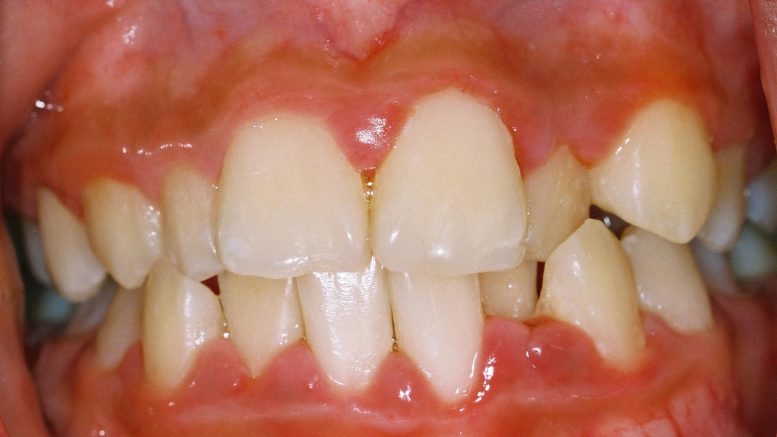Gum disease, or otherwise known as Periodontal disease, can be very destructive. It starts with the inflammation of the gum but it can eventually cause serious damage to the bone. It often involves bleeding gums, bad breath, receding gums, as well as the loss of teeth. Here at Birch Dental Group, nothing is more important than the welfare of our patients. Therefore, it is important that our patients know the causes of gum disease, as well as how to prevent it and treat it if necessary.
Causes of Periodontal Disease
Most people have heard the word “plaque” before, most probably from their dentist. But this sticky, colourless film that forms on the teeth can be the start of periodontal disease. The germs that are found in plaque are responsible for this disease. The plaque, when left on the teeth, creates tartar, which can only be removed by a professional.
Prevention of Periodontal Disease
It is as simple as it sounds: brush and floss your teeth both day and night. The plaques that contains these disease-causing bacteria can be eliminate by a good oral hygiene routine. Remember, it is only tartar that cannot be removed by brushing and flossing. Obviously, regular dentist visits will also help prevent any serious problems from occurring. Smoking will increase the risk of periodontal disease, so quitting would be in the best interest of your health.
Treatment of Periodontal Disease
This disease differs from case to case; patient to patient. It can be severe, moderate or mild. Depending on the severity, the treatment will vary. Always consult your dentist if you are experiencing any of the symptoms – such as swollen gums, bleeding gums or loose teeth.
If the disease is caught in time then a good professional cleaning will be enough to remove plaque and tartar, along with the bacteria which cause gum disease. In some cases, root planing and scaling will be needed to remove the plaque and to smooth the surface of the root, making it more difficult for bacteria to cling on.
There are still cases where root planing and scaling will not be enough. In these, your dentist will most likely choose between resective and regenerative surgeries. For example, your dentist could decide that the patient needs to have their gums reshaped to fit the teeth, or perhaps a surgery is needed to encourage lost bone to grow. This will happen in moderate to severe circumstances.
What if this is still not enough? Periodontal disease can become very severe and destructive. More than one surgery will be necessary and antibiotics may be prescribed. In all the different cases however, it is vitally important that a daily oral hygiene routine is strictly followed.
Gum disease is something that can affect anyone, at any age. However, it can easily be avoided. Realising that it is caused by plaque on the teeth can help patients see the importance of brushing a flossing their teeth. And not to fear if it does infect you, your dentist will know what to do – but don’t forget to call or visit them as soon as possible.



Be the first to comment on "Gum Disease: Causes, Prevention, and Treatment"